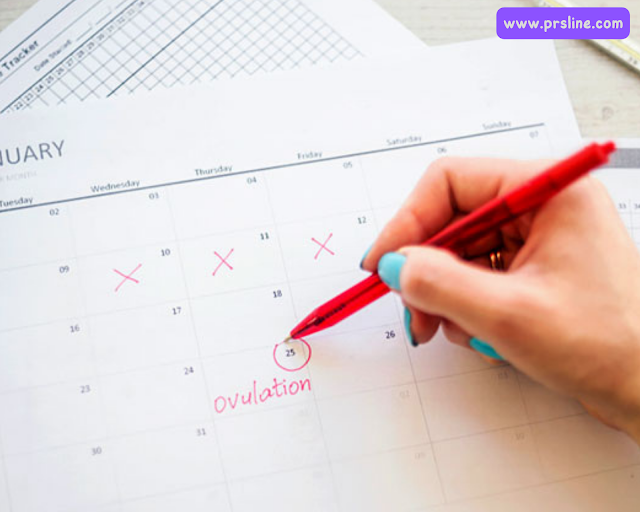How to Track Ovulation A Comprehensive Guide for Women Learn how to track ovulation and increase your chances of conception with our comprehensive guide. Understand the signs of ovulation and the various methods to track it, and make lifestyle changes to optimize fertility.
How to Track Ovulation A Comprehensive Guide for Women
For women who are trying to conceive, tracking ovulation is essential. By understanding the signs of ovulation and utilizing various methods to track it, women can increase their chances of becoming pregnant. In this comprehensive guide, we'll cover everything you need to know about ovulation and how to track it to optimize your chances of conceiving.
What is ovulation?
Ovulation is the process by which a mature egg
is released from the ovary and travels down the fallopian tube, where it can be
fertilized by sperm. This process is essential for conception, and it typically
occurs once a month in women of reproductive age.
Signs of Ovulation
There are several signs that can indicate that
ovulation is occurring. Some of these include:
1-Changes in cervical mucus: As ovulation
approaches, the cervix produces more mucus that is clear, slippery, and
stretchy, like raw egg whites.
2-Basal body temperature changes: Ovulation can
cause a slight increase in basal body temperature that lasts until the next
menstrual cycle.
3-Mittelschmerz: Some women experience a brief,
sharp pain on one side of their lower abdomen during ovulation.
4-Breast tenderness: Hormonal changes during
ovulation can cause breast tenderness or swelling.
5-Increased sex drive: Some women may
experience an increase in libido during ovulation.
How to Track Ovulation
There are several methods women can use to
track their ovulation. Some of these include:
1-Ovulation predictor kits: These kits measure
the levels of luteinizing hormone (LH) in a woman's urine, which surges just
before ovulation.
2-Basal body temperature tracking: Women can
track their basal body temperature every morning before getting out of bed to
see a slight increase that signals ovulation.
3-Cervical mucus changes: Women can track
changes in cervical mucus to determine their most fertile days.
4-Calendar tracking: Women can track their
menstrual cycles and estimate ovulation based on past cycle lengths.
Tips for Boosting Fertility
There are several lifestyle changes women can
make to boost their fertility and increase their chances of conceiving. Some of
these include:
1-Maintaining a healthy weight: Being
underweight or overweight can disrupt hormone levels and make it harder to
perceive.
2-Quitting smoking: Smoking can decrease
fertility in both men and women.
3-Limiting alcohol intake: Heavy drinking can
reduce fertility in both men and women.
4-Managing stress: High levels of stress can
interfere with ovulation and make it harder to perceive.
5-Eating a balanced diet: A diet rich in
fruits, vegetables, whole grains, and lean protein can help optimize fertility.
In conclusion
Ovulation is a vital process in the reproductive system of women, and
there are several ways to track it. By being aware of the signs of ovulation
and utilizing methods to track it, women can increase their chances of
conceiving. Additionally, making lifestyle changes such as maintaining a
healthy weight, quitting smoking, limiting alcohol intake, managing stress, and
eating a balanced diet can all help optimize fertility.
Sources:
Our sources for this article include medical journals and publications, such as the American College of Obstetricians and Gynecologists, Mayo Clinic, and the National Institutes of Health.
The following are some common questions that we answer in the women's section:
1. What are some common misconceptions about pregnancy and fertility?
2. What are the different types of infertility treatments available for couples who are having difficulty conceiving?
3. How does the use of birth control affect a woman's ability to get pregnant after stopping it?
4. What are the risks and benefits of fertility drugs and other assisted reproductive technologies?
5. How does stress impact fertility and what are some ways to reduce stress while trying to conceive?
6. What are the dietary and nutritional requirements for a woman who is trying to get pregnant or is already pregnant?



